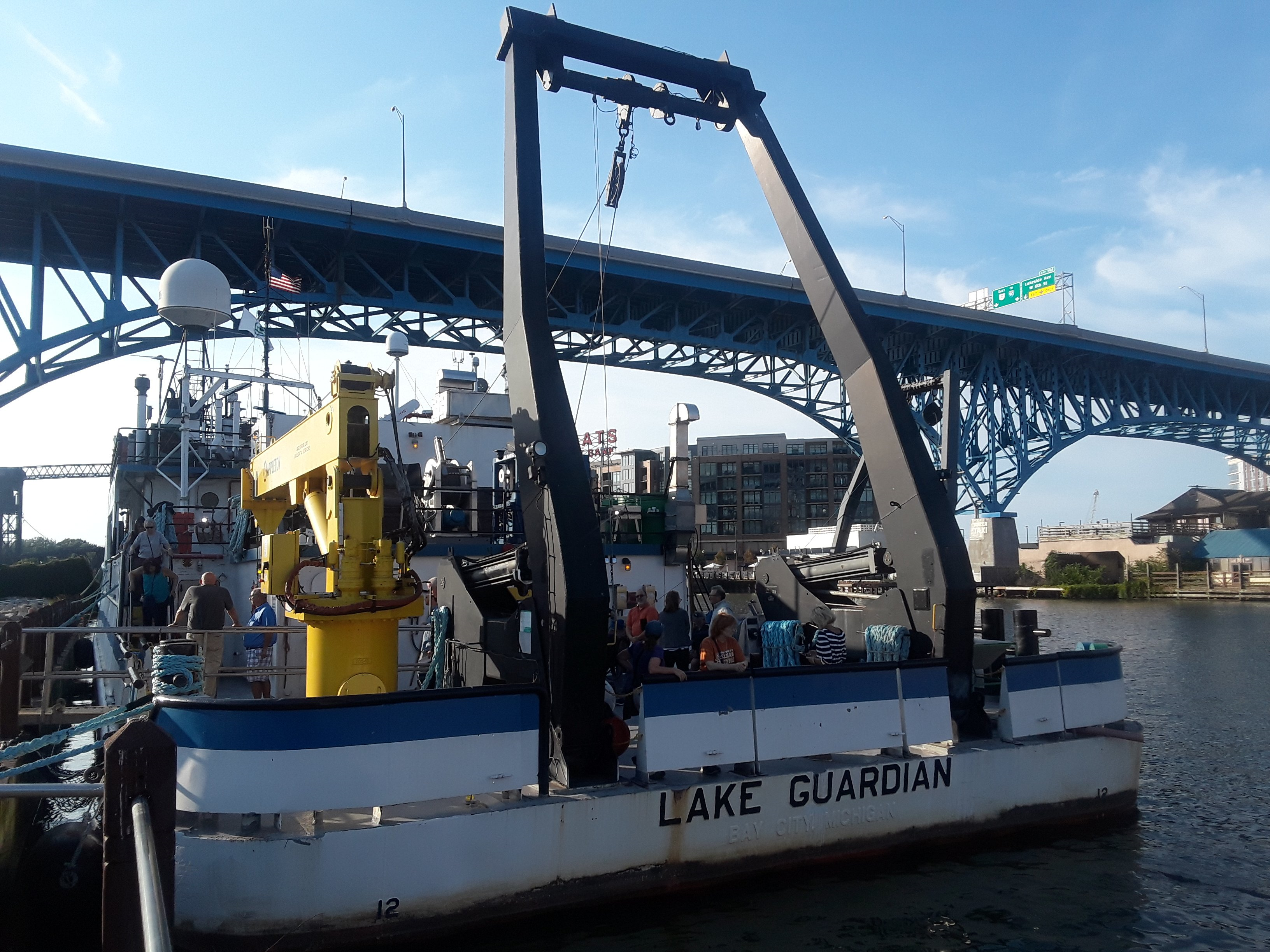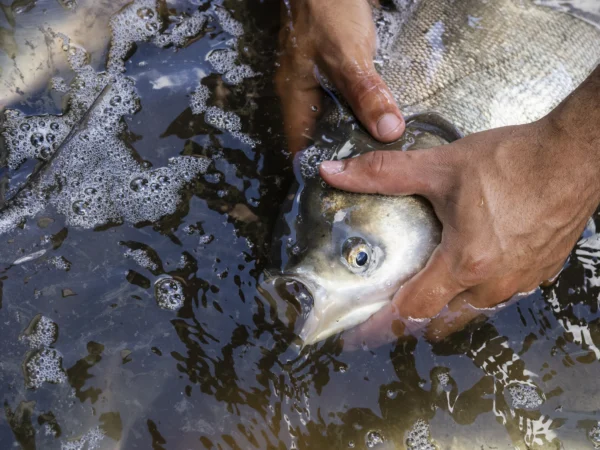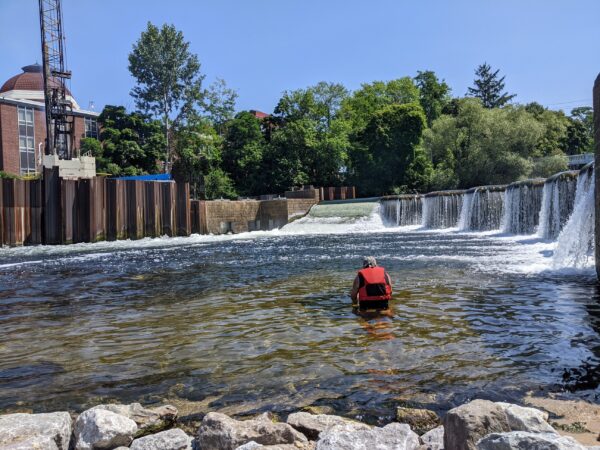
Even as the federal government is spending trillions of dollars to boost the economy shut down by the COVID-19 virus, Congress has moved to increase funding for the Great Lakes.
The U.S. EPA announced last week that an additional $20 million has been allocated to restore the lakes. The money is targeted at accelerating cleanup of toxic hotspots known as Areas of Concern and to fund research to improve ballast water treatment on lake freighters.
Since the Areas of Concern list was developed in 1987, only four of the 31 U.S. sites have been removed from the toxic list. Among the sites yet to be removed includes the Detroit and Rouge rivers.
Ballast water discharges to the Great Lakes have led to the introduction of approximately 185 aquatic invasive species, many from overseas locations. The funding announced for ballast water research will focus on vessels that operate primarily in the Great Lakes and was welcomed by the shipping industry’s trade group.
“Lake Carriers’ Association welcomes the additional funding to ballast water research and system development,” said James Weakley, president of the association.
The group submitted a specific ballast water proposal months ago and has other projects that could use funding, according to Weakley.
“We are hopeful that if the goal is to eventually install treatment systems on lakers, it is time to fund projects with practical implications,” Weakley said.
The Great Lakes Trash Free Waters program announced earlier this year will receive $2 million and will focus on removing trash in Great Lakes communities, harbors and the mouths of rivers that flow to the lakes.
Money is also included for prevention of invasive species like Asian carp and to reduce nutrient runoff from farms that cause harmful algal blooms.
Catch up on Great Lakes Now‘s coverage of Asian carp and nutrient runoff:
Factory farms provide abundant food, but environment suffers
Muddied Waters: Bureaucratic process leaves well water at risk and farmers feeling targeted
API key not valid. Please pass a valid API key.Funding for the federal program, the Great Lakes Restoration Initiative, has been static at $300 million since early in the administration of President Barack Obama, who made funding the Great Lakes restoration a priority. The groundwork for the restoration program goes back to the George W. Bush administration.
President Donald Trump sought to eliminate all federal funding for the Great Lakes in his early budget proposals but was overruled by Congress after bipartisan pushback from the region.
EPA administrator Andrew Wheeler, an Ohio native, told reporters on a media call last week that in his nearly two years at the EPA, he has supported funding for the lakes.
Wheeler, without commenting on Trump’s attempts to slash the budget, said the president now supports Great Lakes restoration.
COVID-19 hovers
In spite of the additional funding, the COVID-19 virus still hovers over almost everything.
Great Lakes Now asked what, if any, impact the virus would have on Great Lakes work.
Wheeler said that in general, field visits could be canceled or be made only in case of an emergency utilizing “extreme caution.” On Great Lakes research, he was hopeful it could continue and a full year wouldn’t be lost.

The U.S. EPA’s Great Lakes research vessel, the Lake Guardian, docked in Cleveland for a public tour. Photo by Natasha Blakely.
The work of EPA’s Great Lakes research vessel, the Lake Guardian, is on pause and spring sampling is on hold, according to Ken Thiede, the Region 5 administrator for the lakes.
In Michigan, the Department of Environment, Great Lakes, and Energy, continues to operate “in a way that protects public health,” according to spokesperson Nick Assendelft.
The work “allows meaningful public participation and input on Areas of Concern throughout the Great Lakes,” he said.
Assendelft cited a recent public webinar conducted with the Wisconsin Department of Natural Resources about the proposed removal of the Lower Menominee River from the Areas of Concern list.
EGLE’s work on AOCs is expected to continue, according to Assendelft, who said it could be dependent on the ability of federal or regional partners to participate.
State funding in doubt
While federal funding for Great Lakes work continues, individual states whose revenues are taking a hit because of the sudden impact from COVID-19 are looking at previously approved programs for money.
Projects in Ohio designed to reduce nutrient runoff from farms that cause harmful algal blooms received $5.2 million in 2019 from the federal restoration program, according to Ohio EPA spokesperson Heidi Griesmer.
Griesmer said federal funds for 2020 have yet to be awarded. She referred questions on fighting algal blooms during the COVID-19 crisis to the Ohio Department of Agriculture.
The initial rollout of Ohio’s H2Ohio program to encourage farmers to use best practices to reduce runoff was successful, said Dorothy Pelanda, director of administration in a statement on the department’s website.
But she included a cautionary note for the future of the program.
“While the rollout of the program was very thoughtfully executed, the economic impact of the COVID-19 pandemic has caused a necessary reevaluation of ODA’s budget for the H2Ohio Initiative,” Pelanda said.
Michigan Gov. Gretchen Whitmer, working in concert with the state legislature, removed the authority to spend $8 million from the budget that had been designated to fight Asian carp in Illinois.
“Obviously, the governor and legislature were examining immediate priorities in light of the COVID-19 emergency and directing resources to the most critical needs,” DNR spokesperson Ed Golder said. A reinstatement of the funding could be revisited in the future.
Additional funding cuts are not anticipated but Golder said “the situation is evolving quickly and could change.”
EGLE’s Assendelft said the department budget has not been cut.
“However, we anticipate that reduced state revenues and fees paid to the department may eventually affect how much money we have to support EGLE’s work,” he said.
EGLE is prepared to adjust and will continue to focus on the environment and public health within available revenue, according to Assendelft.
Read Great Lakes Now‘s continued coverage of the Great Lakes Restoration Initiative:
House Renewal: A bipartisan-sponsored bill increasing Great Lakes funding passed the U.S. House
Funding Boost: Michigan, Ohio senators secure increase for federal Great Lakes restoration program
Featured image: EPA Administrator Andrew Wheeler speaking before the Detroit Economic Club.




